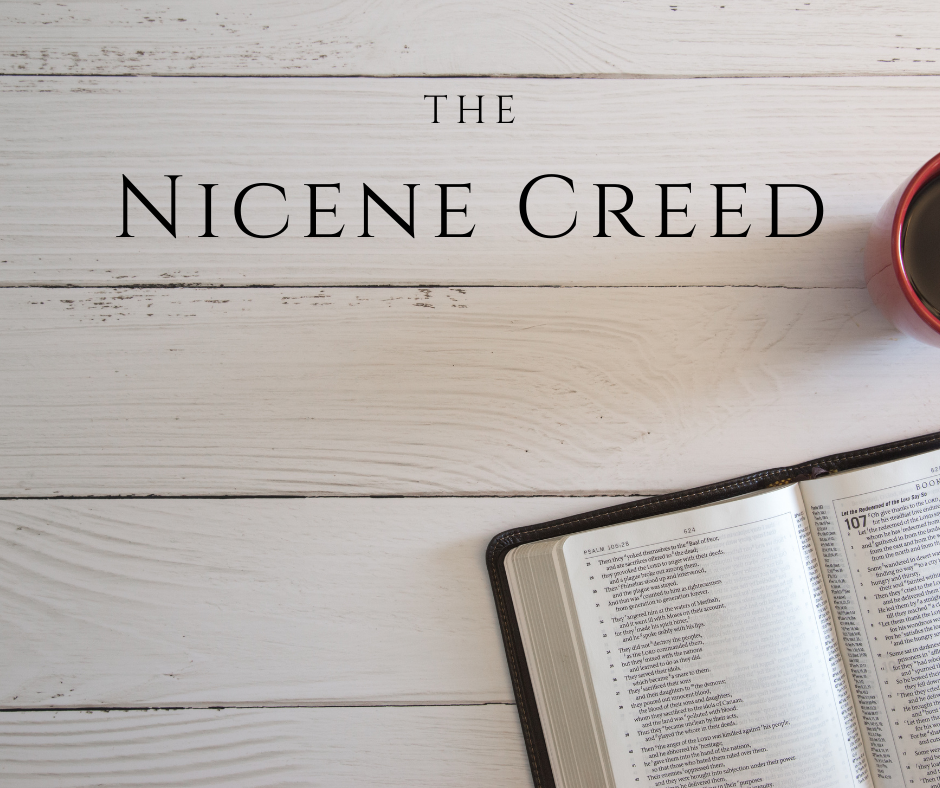Difference between 325 and 381
Before moving to the next section, I want to stop and reflect on something that I have commented about a couple of times. This Creed we are looking at was written within history and dealing particularly with heresies, mainly Arius’ heresy saying Jesus was not God but was a celestial servant of God. In the original Creed, 103 Greek words were used, 83 spoke about the second person of the Trinity (See Chart 1). The Creed was approved in 325, but errors and heresies still spread throughout the Church. In 337, Constantine’s son, Constantine, the second, began to have an open discussion about removing the Creed and replacing it with a pro-Arius creed, which did not happen. The Nicaean Creed looked explicitly at the divinity of Christ, hence why about 80 percent was written addressing this issue. In the 360s, the question started to arise about the Divinity of the Holy Spirit. A group of people called the ‘Macedonians’ or Semi-Arians, denied the godhood of the Holy Spirit. This view is called Pneumatomachi or ‘Combaters against the Spirit’ (Pneuma, which means Spirit, and Machi, which implies battle). The original Creed only had five words about the Spirit, “and in the Holy Ghost.” Through the 360s and 370s, this discussion continued. Eventually, a council was called by Roman Emperor Theodosius II, also known as Theodosius the Great.
One of the most significant changes to the Creed from 325 to 381 was expanding the section on the Holy Spirit from five words to twenty-eight words. They also made an additional section that includes the Church, baptism, resurrection, and heaven. Although Theological truths never change because God is the same yesterday, today, and forever. We need to understand that Theology never happens in a vacuum but within history. The world in which theology is written changes, and then so do theological studies. The Reformation is one example of this. The Reformation turned back to God’s word as the foundation of Theology but was still within history. The Reformation in the Church of England happened within history. We need to understand history better to help understand Theology within History. One of the impacts of liberalism can be seen in the lack of study with the Holy Spirit. Liberalism sought to ‘humanize’ the Bible and make it align with scientific theories. However, when you seek to naturalize the Bible, you remove the Holy Spirit’s work, especially in his work of inspiration. The Holy Spirit then becomes an emotional response or conscience of the person, not as we will see the Third Person of the Trinity.
One of the significant areas of study that is growing today is the studies in the Trinity. Previously if you wanted to read a good book on the Trinity, you would have to read Roman Catholic authors. However, that has and is changing. We still lack good resources on the Holy Spirit; however, I believe John Calvin was one of the greatest theologians of the Holy Spirit. The Spirit is not an afterthought to his theology but is woven throughout his entire works.
The entire Nicene- Constantinople Creed (381) was only 175 words in Greek. A short, succinct summary of Theology written within history addresses a historical theological issue, but with true Theology, it is timeless.




